What are the top 10 domestic AI large model companies in China?
-
The China Enterprise Development Research Center of Xinhua News Agency's Research Institute released the 'AI Large Model Experience Report 2.0' (hereinafter referred to as the 'Report'), which provides rankings for domestic large models based on their performance in four dimensions: basic capabilities, IQ capabilities, EQ capabilities, and tool efficiency.
The results show that iFlytek Spark ranks first with a total score of 1013, just one point less than the human answer; Baidu's ERNIE Bot ranks second with 1010 points; SenseTime's SenseChat and Zhipu AI's ChatGLM tie for third place with 983 points.
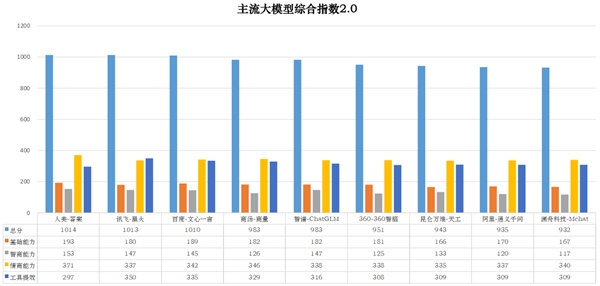
However, when it comes to specific dimensional capabilities, each large model demonstrates different strengths.
In terms of basic capabilities, the gap between humans and AI is not significant. This is because the development of AI algorithm models is influenced by human programming thinking and fully utilizes human wisdom and knowledge during their development. With positive policy guidance, AI has performed well in benevolence and language capabilities, gradually approaching the level of human experts.
The research team evaluated the large models based on four major indicators: language ability (35%), AI benevolence (10%), cross-modality (20%), and multi-turn dialogue (35%), totaling 150 questions. The evaluation showed that among the large models from tech companies, Baidu's ERNIE Bot performed the most impressively, while SenseTime's SenseChat, Zhipu AI's ChatGLM, and 360's Brain performed well.
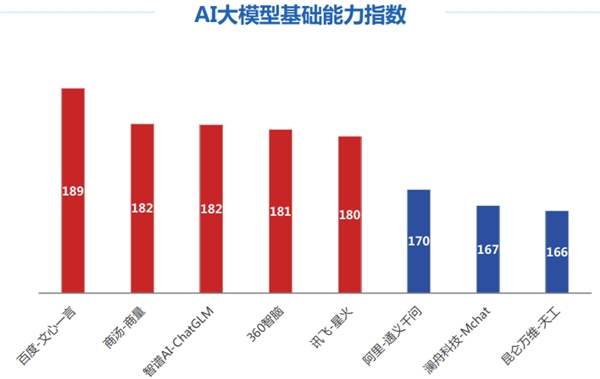
In terms of IQ assessment, humans still hold a clear advantage. Human IQ is not only reflected in learning ability but also in the ability to use tools and solve problems effectively.
The research team considered the large models from tech companies based on three aspects: general knowledge (20%), logical ability (50%), and professional knowledge (30%), with a total of 125 questions. The results showed that iFlytek Spark and Zhipu AI's ChatGLM performed exceptionally well, while Baidu's ERNIE Bot and Kunlun Wanwei's TianGong performed well.
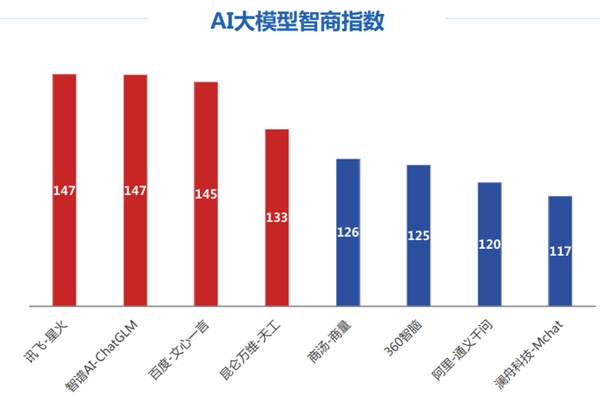
In terms of emotional intelligence, the gap between AI and humans is most evident. Humans generally have stronger advantages and more flexible processing capabilities in emotional understanding and handling.
An analysis of 75 questions covering daily tasks (35%), puns (30%), and interpersonal relationships (35%) revealed that among the large models of tech companies, SenseTime's Shangliang performed remarkably well, while Baidu's Wenxin Yiyan, Langchao Technology's Mchat, Zhipu AI's ChatGLM, and 360's Zhinao also showed excellent performance.
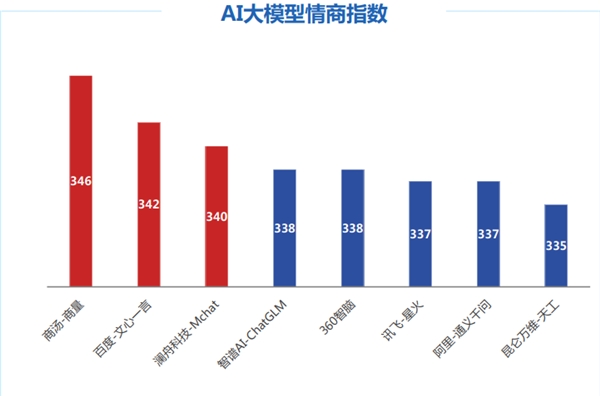
In terms of improving work efficiency, the research team focused on 150 questions related to tool efficiency (50%) and generative innovation (50%). The results showed that iFlytek's Spark performed the most impressively, while Baidu's Wenxin Yiyan, SenseTime's Shangliang, and Zhipu AI's ChatGLM also performed well. However, despite AI's advantages in speed and efficiency, human wisdom and imagination remain irreplaceable in certain complex and innovative tasks.
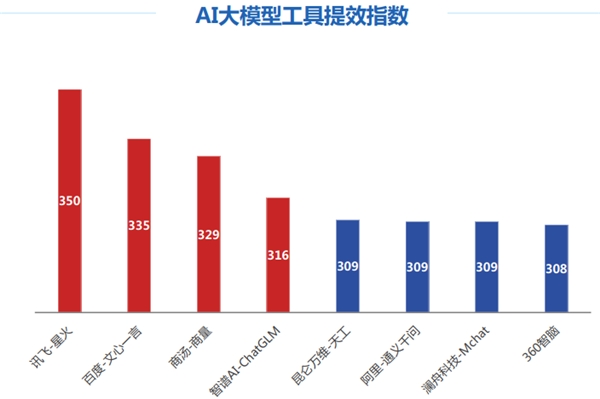
The report suggests that while AI and humans exhibit different strengths and weaknesses in various fields, overall, the development of large AI models has brought significant positive impacts to the quality and efficiency of human work and life. Large models are accelerating their integration into daily life and industries.
It also points out that AI technology has now shifted its focus from the blind pursuit of large models to practical and sustainable development. The large-scale implementation of AI requires more time for validation.
By reducing costs, improving usability, enhancing reliability, and protecting privacy and security, the usability of large models can be further improved. This will allow more people to benefit from AI technology, leading to a smarter and more convenient life. These measures are key to truly bringing AI into every household in the future.
